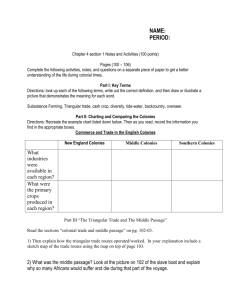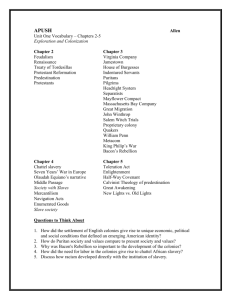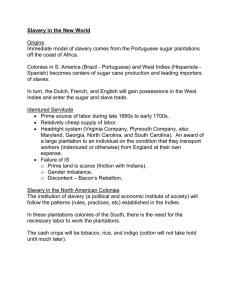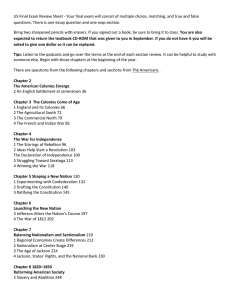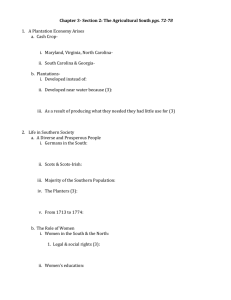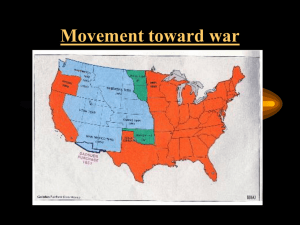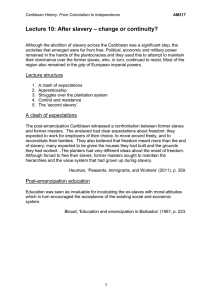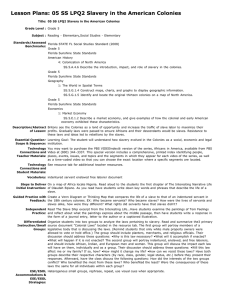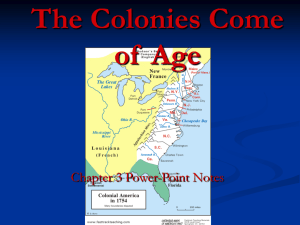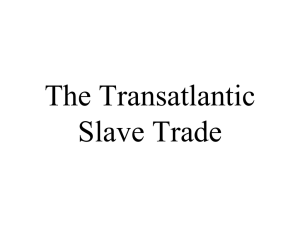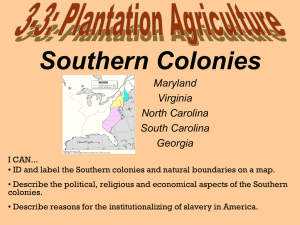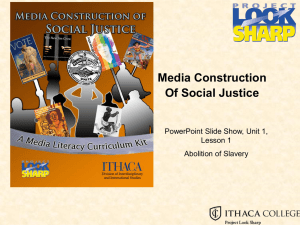Ch 3.2 The Agricultural South
advertisement
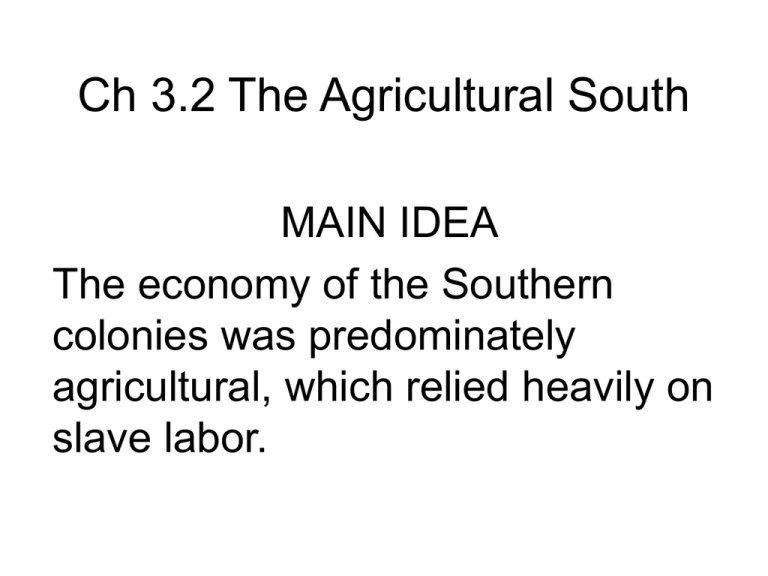
Ch 3.2 The Agricultural South MAIN IDEA The economy of the Southern colonies was predominately agricultural, which relied heavily on slave labor. WHY IT MATTERS NOW The existence of slavery deeply affected the South and the nation. Plantation Economy • Growth of agriculture and cash crops. -Fertile soil. -Tobacco, sugar, indigo, and rice. • Long deep rivers used for transport. • Plantations are self-sufficient. • Few cities grow: warehouses, shops not needed. Diverse Population • In 1700’s, many German, Scot, ScotIrish immigrant to the South. • Mostly small farmers. • Planters control economy. • By the mid-1700s, export trade makes colonies wealthy. Role of Women • Have few legal or social rights and very little schooling. • Cook, clean, garden, and do farm chores. • Submit to husband’s will. Rich or poor. Indentured Servants • In 1600’s, male servants are 1/2 to 2/3 of immigrants. • By the 1700’s report of hardships keep European laborers away. -Cost rise. Evolution of Slavery • Slaves- people considered the property of others. -Work for life, inherited. • Colonists unable to enslave Native Amer. • American slavery clearly racebased. Triangle Trade • Network ties colonies, Africa, and West Indies. -New England exports rum to Africa. -Africa exports slaves to West Indies. -West Indies export sugar, molasses to New England. The Middle Passage • Middle leg of triangle trade. • 20% or more died from disease, abuse, or suicide. Slavery in the South • 80%-90% are field hands, 10%-20% are house hands or artisans. • Work from 12 yodeath. • Beat or whipped those considered disobedient or disrespectful. • Owners hired overseers. Culture and Family • Many different cultures and languages. • Tried to preserve culture heritage: crafts, music, stories, and dance. • Merchants and owners split up families; slaves raised childern left behind. Resistance and Revolt • Sabotage or escape. • Stono Rebellion, 1739 -Planter families killed. -Militia defeats slaves. • Slave laws tighten. -Rebellions continue.
